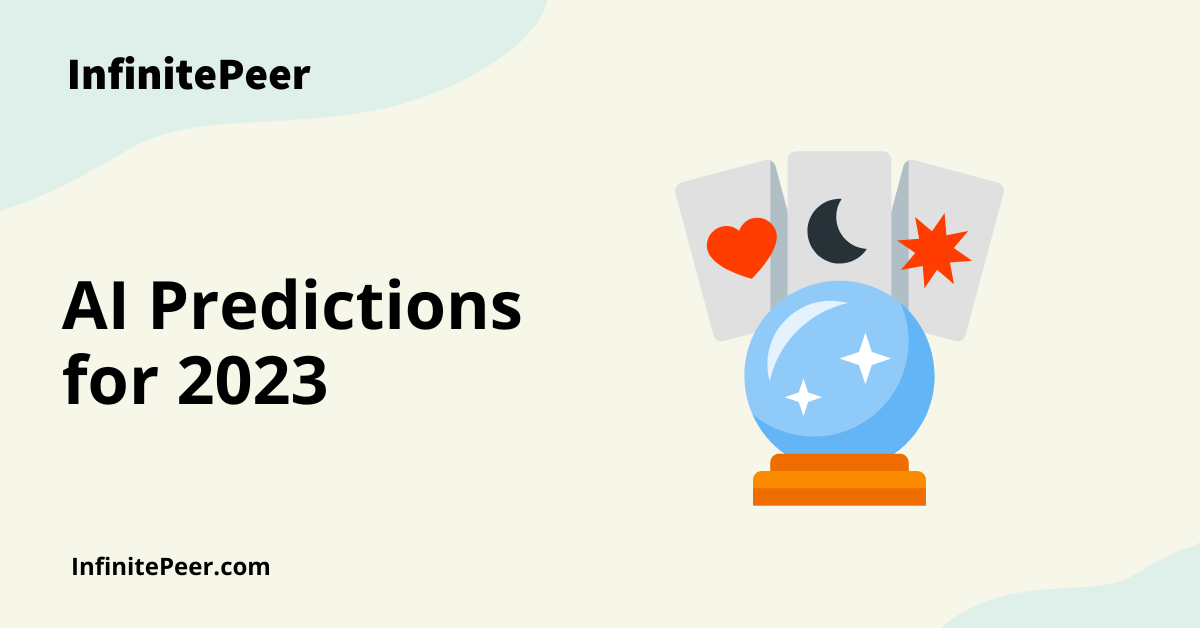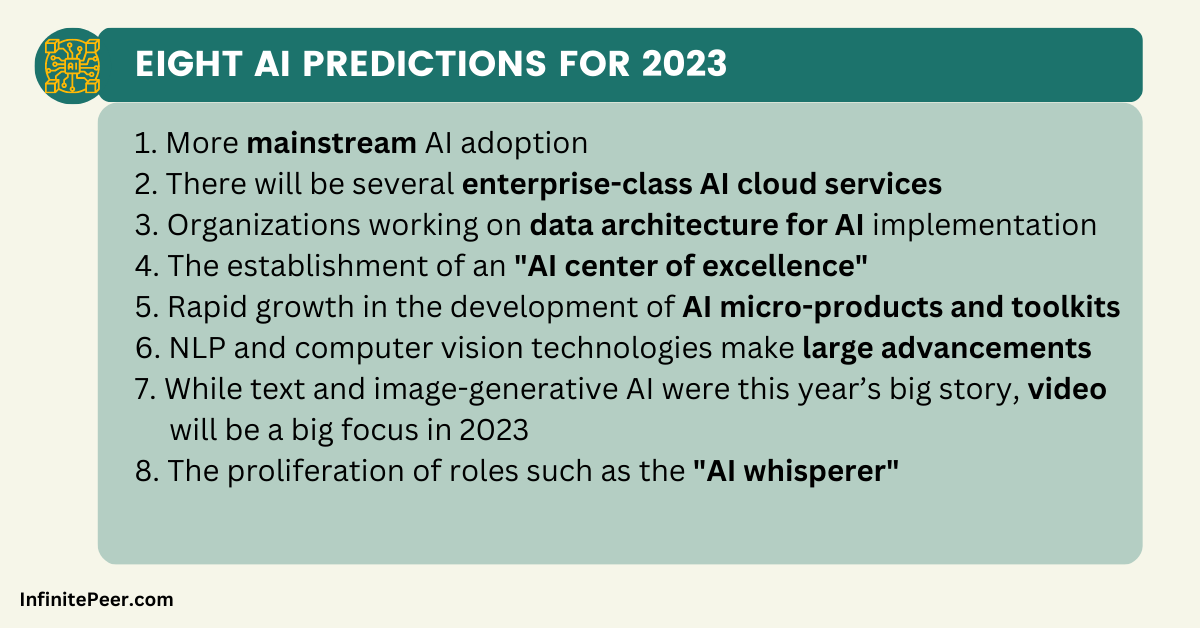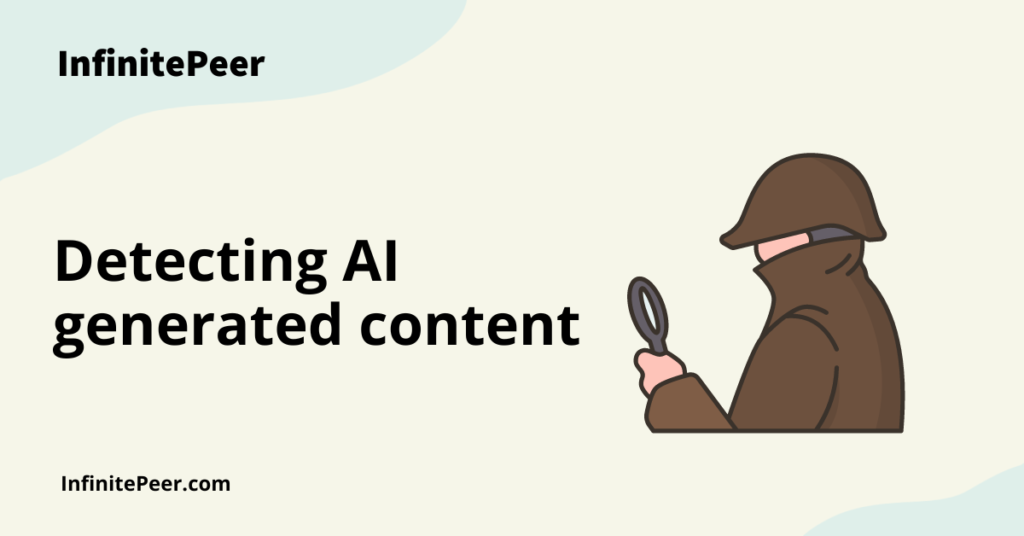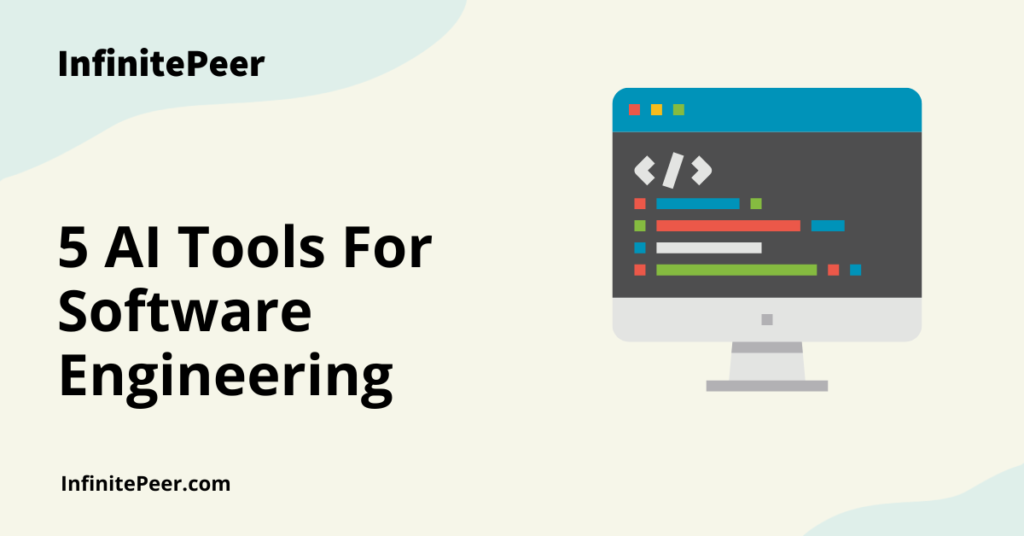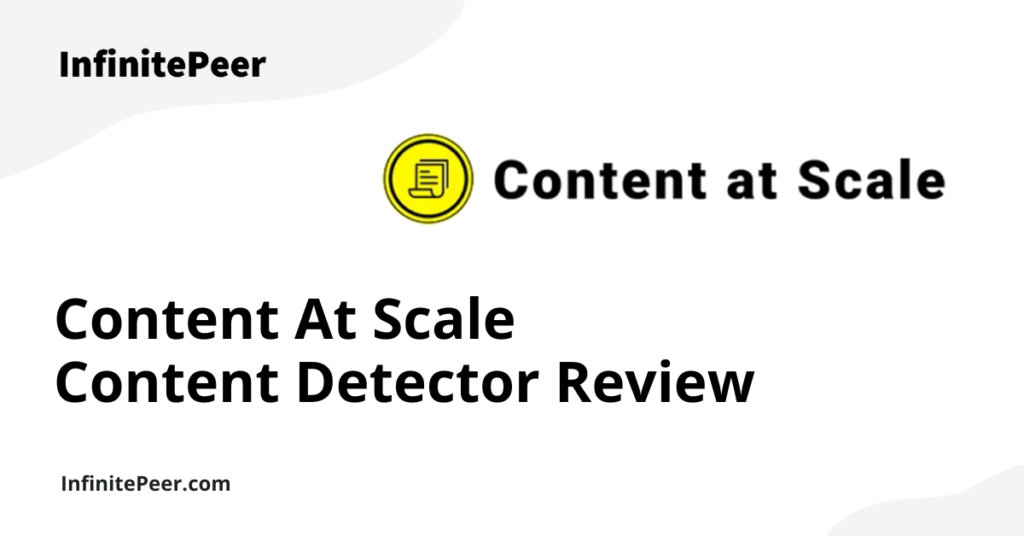Many of the major advances achieved by artificial intelligence (AI) in 2022 and beyond have been discussed on this site. We’re looking forward to 2023 since its potential is just going to increase from here on out.
In this article, we will explore our top AI predictions for 2023. It is apparent that AI will continue to impact the way we work and engage with this technology, from developments in natural language processing to the rising adoption at the enterprise level. As we look ahead to the next year, it’s crucial to think about how these new artificial intelligence technologies can affect many sectors and facets of our lives. If you’re interested in McKinsey’s 2023 predictions, read our summary of their State of AI report.
Mainstream AI Adoption
As AI becomes more widely available and sophisticated, we predict that its widespread use will increase further in 2023. There is a growing trend toward incorporating AI into a variety of fields and functions, such as customer service, healthcare, education, and business operations.
For instance, AI-powered chatbots and virtual assistants will undoubtedly become more widespread in customer service, allowing for faster, more precise responses to customer inquiries.
AI has the potential to aid in healthcare by analyzing massive volumes of medical data to discover patterns and trends or by providing insight into the creation of new treatments.
It is also expected that AI will play a more significant role in education, with AI-powered tools being utilized to individualize learning experiences and make distance learning more accessible.
Many positive outcomes, such as enhanced efficiency, productivity, and convenience, are predicted to result from the widespread use of AI in the year 2023.
There will be several enterprise-class AI cloud services
We expect that by 2023, several high-quality AI cloud services will emerge at the enterprise-level. With these offerings, organizations will have access to the tools and infrastructure required to create and launch AI applications at scale. By using enterprise AI cloud services, organizations can take advantage of AI’s benefits without forking over a tonne of money for new servers, software, and other IT infrastructure.
Using enterprise-grade AI cloud services may have advantages, including the capability to easily scale up or down as needed. Businesses that deal with demand swings or varying amounts of work could benefit greatly from this flexibility. As a bonus, enterprise-level AI cloud services can provide access to a wide variety of cutting-edge AI technology and expertise, streamlining the process by which enterprises can integrate AI into their operations.
Enterprise-grade AI cloud services are expected to become widely available to companies in 2023, making it simpler for them to adopt and integrate AI into their operations, which in turn should boost productivity and competitiveness.
Organizations working on data architecture for AI implementation
In 2023, companies will likely keep working on the data infrastructure they’ll need to support AI initiatives. A company’s ability to effectively implement AI is greatly aided by its data architecture, which is how data is structured and organized within the company.
Organizations will need to think about things like data sources, data pipelines, and data governance to construct a solid data architecture for AI. To feed data into AI applications, they may have to find and combine disparate data sets from places like internal systems, external databases, and social media platforms. Data pipelines may also need to be implemented to ensure the regular and effective extraction, transformation, and loading of data. In addition, businesses will require data governance policies and processes in place to guarantee the honesty and precision of the information fed into AI systems.
Companies that want to take advantage of the possibilities offered by artificial intelligence will make developing data architecture for AI implementation a top priority in 2023. Organizations can increase their efficiency, efficacy, and decision-making with the help of AI if their data architecture is well-designed.
The establishment of an “AI center of excellence”
We predict that companies are set to become more focused in 2023 when it comes to establishing an “AI center of excellence” within their organization. These groups will be responsible for guiding the creation and rollout of AI initiatives across the company, and they will most likely include specialists from different departments as well as outside vendors.
The success of these AI teams will depend on their ability to pool their members’ varied backgrounds and areas of expertise into a cohesive whole. To achieve these goals, you’ll need to cultivate strong working relationships with various departments inside your organization so you can better understand their unique challenges and opportunities, as well as locate and utilize the most talented vendors to fuel your pursuit of excellence.
Organizations will be in a stronger position to promote innovation and maintain a competitive edge if they assemble a specialized team of specialists from various backgrounds. These AI teams will play a crucial role in enabling businesses to realize AI’s full potential by driving the development and implementation of AI initiatives across the enterprise. Does your organization have an “AI center of excellence”? We would love to hear about it!
Rapid growth in the development of AI micro-products and toolkits
We predict that by 2023, the concept of AI micro-products or toolkits that can link to ERP systems via middleware will see widespread use. To make precise predictions and projections, businesses may now use these micro-products or toolkits to create and deploy advanced machine learning (ML) algorithms.
In 2023, businesses will likely differentiate themselves in significant ways by integrating AI micro-products or toolkits within their business processes. With the help of AI and ML, these businesses will be able to make more informed decisions and achieve greater levels of success.
Adopting AI micro-products or toolkits would likely necessitate heavy investment in data infrastructure and data architecture, as well as the creation of strong governance policies and processes to guarantee the honesty and precision of the data being used. Nevertheless, many businesses will undoubtedly find the benefits of utilizing artificial intelligence and machine learning to produce very accurate predictions and projections to justify the cost.
Natural language processing and computer vision technologies make large advancements
Natural language processing (NLP) and computer vision technologies are going to continue their rapid development in 2023. We expect that the widespread use of these technologies will explode in the next several years, ushering in a new age in human-machine interaction.
With the use of NLP technology, computers can interpret and process human language, paving the way for more natural and seamless interaction with virtual assistants and other AI-powered systems. However, computers are now able to analyze and understand visual data like photographs and videos thanks to advancements in computer vision technologies and optical character recognition (OCR). Image and video analysis, driverless vehicles, and augmented reality are just some of the many fields that could benefit from these technologies.
When it comes to artificial intelligence, 2023 is predicted to be a watershed year for the advancement of natural language processing (NLP) and computer vision technologies. It will become easier than ever to integrate these into software and tools, both of which are expected to bring numerous benefits to the table, including improved efficiency, productivity, and user-friendliness.
While text and image-generative AI were this year’s big story, video will be a big focus in 2023
Following considerable years of advancement in text and image-generative AI, we expect video-generative AI to become a primary emphasis in the coming year for artificial intelligence innovators. Imagine a ChatGPT or Stable Diffusion, but for video? Simply enter a prompt and a creative video is generated as described. It will usher in an entirely new wave of video creation.
The use of AI to create videos, such as teasers for new movies or news segments, is known as “video generative AI.” The adoption of this technology, which can transform the production and consumption of video, is expected to skyrocket in 2023.
The use of video-generating AI has the potential to speed up and simplify the process of making high-quality video content while also reducing the cost of making it. Anyone with ties to video creation understands how time-consuming and expensive this type of content is to produce. This has the potential to increase the variety of video material produced as well as its personalization and targeted content.
The proliferation of roles such as the “AI whisperer”
We predict roles like the “AI whisperer” are set to increase in demand in 2023. The AI whisperer is a sought-after creative talent with a unique skill set: the ability to turn words into works of art.
An NLP expert’s job description includes coming up with engaging content and generating text. This may involve creating content such as articles, social media posts, promotional materials, and more. The AI whisperer is someone who, via their ingenuity and command of the English language (and prompts!), can produce work that strongly resonates with audiences.
There will be a greater need for “AI whisperers” in 2023 as more businesses embrace AI tools and begin to explore how to leverage them in their content creation processes. The AI whisperer’s knowledge and experience will be vital in facilitating businesses’ ability to reach and engage with their target audiences through the usage of AI-generated content.
Comment below your artificial intelligence predictions for 2023!
